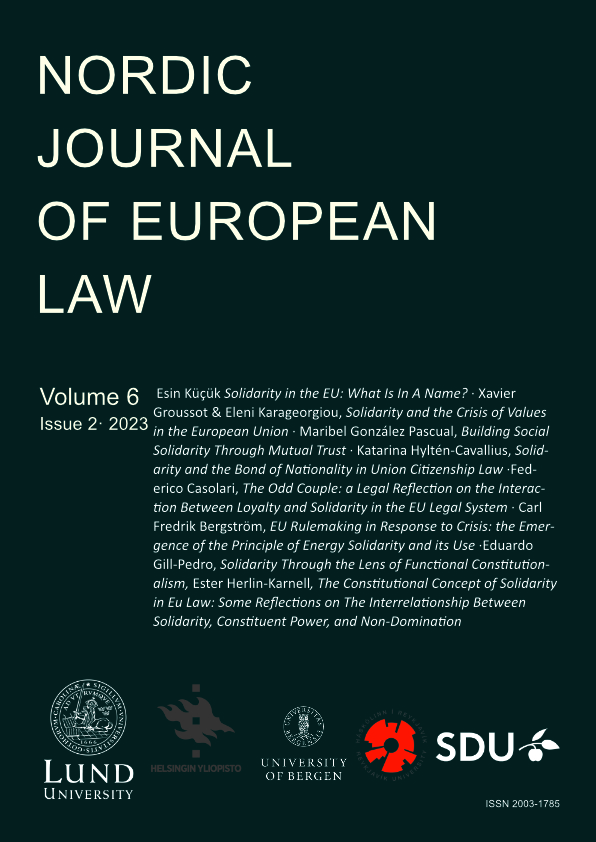Solidarity in the EU: What Is In A Name?
Main Article Content
Abstract
The jurisprudence on EU solidarity is rapidly expanding. Notably, the Court of Justice of the EU has progressively recognized the principle of solidarity in its rulings, elevating it to constitutional status. However, as the legal scope of solidarity widens, its scope of application and meaning become increasingly complex. This article seeks to refine our understanding of solidarity as a constitutional principle of EU law. Focused on the Court’s case law, the article maps the evolution of solidarity as a constitutional principle and unpacks the ways in which solidarity has given rise to novel interpretations and extended its sphere of influence. The article concludes that while the meaning and arguably the scope of the principle have expanded, such evolution comes with its set of challenges. The intrinsic dependency of solidarity on specific relational and situational contexts raises a significant obstacle for its conceptualization as a fundamental principle underpinning the EU legal order, particularly if it has legal implications. Consequently, the article argues that elevating solidarity to a fundamental principle of EU law - one that permeates the entire legal structure of the EU and has legal consequences - would be premature until the practical manifestation of solidarity matures beyond the confines of inter-Member-State relations. The article suggests that solidarity might be more accurately conceptualized as a fundamental value rather than an all-encompassing constitutional principle of EU law.
Article Details

This work is licensed under a Creative Commons Attribution-NonCommercial-NoDerivatives 4.0 International License.

